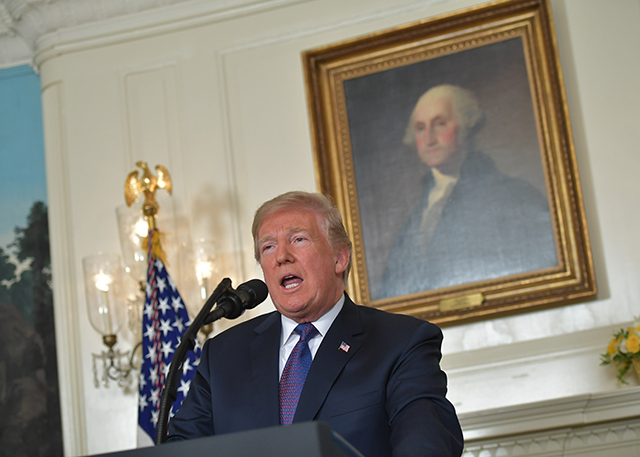
Part of the Series
Progressive Picks
Support justice-driven, accurate and transparent news — make a quick donation to Truthout today!
The Trump administration is in such destructive disarray that details of the damage often get lost or quickly buried in the president’s churn of tweets — and his ability to issue shocking personal and policy statements. Amy Siskind provides a vital service by chronicling the particulars of Trump’s disastrous presidency in list form.
Mark Karlin: What are your criteria for what makes it to the list?
Amy Siskind: Things that are not normal in our democracy. In other words, the old policy battles between Democrats and Republicans over tax policy or Obamacare are not in the list. But when people with disabilities were protesting the Republican health care bill outside McConnell’s office and they were handcuffed and dragged out of their wheelchairs, that is not normal and would make the list. As would all the rights and protections being taken away from marginalized communities and women and people with disabilities — the kleptocracy, conflicts of interest, authoritarian leanings and so on.
If we look through the mainstream media, a good portion of the news is journalists reacting to Donald Trump’s tweets. Your list reminds us that Trump is getting a lot of dangerous things accomplished while diverting attention. Do you think Trump is leading the media around with his tweets, in a way orchestrating much of his coverage?
Yes. In any given week the media is chasing the same stories, and many important stories are getting little or no coverage. For example, this past week (Week 73) a good portion of our media attention all week long was on Pruitt, and many important stories were totally neglected, including Trump’s DHS [Department of Homeland Security] saying they will start a database of journalists and bloggers. This happens often so that 50-80 percent of the stories in each week’s list get covered only one place and/or minimal attention.
I heard you on MSNBC the other day and you indicated that the content of the weekly lists is reflecting a more authoritarian direction by the Trump administration. Can you elaborate?
Trump is seizing power now and acting unilaterally. The Republicans have no policies and are not putting in any checks and balances. Every action in the past five weeks — be it tariffs, the “caravans” and amping up anti-immigrant sentiment or possibly withdrawing from Syria or meeting with Kim Jong Un — has been the decision of one man.
Do you have a “favorite week” and, if so, why?
I think Week 32 is the most interesting because it is full of evidence that we may not have had a fair election. From Deep Root Analytics, a GOP data firm exposing personal information of 200 million voters online where anyone (including Russia) could steal it — or voter rolls in North Carolina blue districts — or hacking attempts in Texas, again in blue districts. So much has yet to be told about Cambridge Analytica and efforts that seem so well organized and microtargeted to change the outcome of our election.
How do you keep the ever-changing roster of Trump figures straight? In short, where do you find time to track as many daily pernicious actions as you document and not get bollixed up with the chaos?
I have gradually had to cede over all of my personal life to keep up. As the list grew from nine items in Week 1, to around 30 when he took office, to 60, then 100 as he staffed up the regime — each jump meant the hours I devoted grew. As we finished off year one, I was spending roughly 25-30 hours each week as the lists approached 120 items. Now it has reached 30-35 hours, as we have reached 150 plus items. I have to pay attention every day and unfortunately for me, haven’t been able to look away, even for a day, since November 2016.
Media that fights fascism
Truthout is funded almost entirely by readers — that’s why we can speak truth to power and cut against the mainstream narrative. But independent journalists at Truthout face mounting political repression under Trump.
We rely on your support to survive McCarthyist censorship. Please make a tax-deductible one-time or monthly donation.